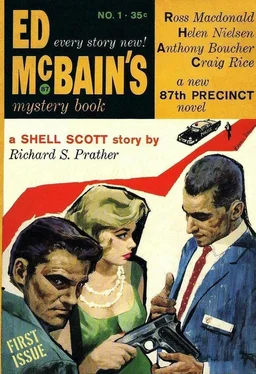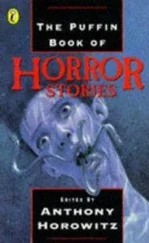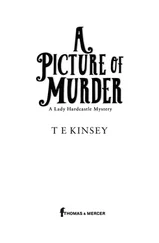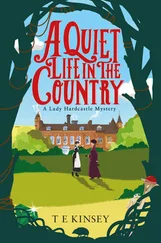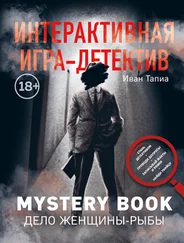Anthony Boucher - Ed McBain’s Mystery Book, No. 1, 1960
Здесь есть возможность читать онлайн «Anthony Boucher - Ed McBain’s Mystery Book, No. 1, 1960» весь текст электронной книги совершенно бесплатно (целиком полную версию без сокращений). В некоторых случаях можно слушать аудио, скачать через торрент в формате fb2 и присутствует краткое содержание. Город: New York, Год выпуска: 1960, Издательство: Pocket Books, Жанр: Детектив, на английском языке. Описание произведения, (предисловие) а так же отзывы посетителей доступны на портале библиотеки ЛибКат.
- Название:Ed McBain’s Mystery Book, No. 1, 1960
- Автор:
- Издательство:Pocket Books
- Жанр:
- Год:1960
- Город:New York
- ISBN:нет данных
- Рейтинг книги:5 / 5. Голосов: 1
-
Избранное:Добавить в избранное
- Отзывы:
-
Ваша оценка:
- 100
- 1
- 2
- 3
- 4
- 5
Ed McBain’s Mystery Book, No. 1, 1960: краткое содержание, описание и аннотация
Предлагаем к чтению аннотацию, описание, краткое содержание или предисловие (зависит от того, что написал сам автор книги «Ed McBain’s Mystery Book, No. 1, 1960»). Если вы не нашли необходимую информацию о книге — напишите в комментариях, мы постараемся отыскать её.
Ed McBain’s Mystery Book, No. 1, 1960 — читать онлайн бесплатно полную книгу (весь текст) целиком
Ниже представлен текст книги, разбитый по страницам. Система сохранения места последней прочитанной страницы, позволяет с удобством читать онлайн бесплатно книгу «Ed McBain’s Mystery Book, No. 1, 1960», без необходимости каждый раз заново искать на чём Вы остановились. Поставьте закладку, и сможете в любой момент перейти на страницу, на которой закончили чтение.
Интервал:
Закладка:
John Corrigan, he thought. Governor John Corrigan.
Corrigan, the Boy Wonder. No longer a boy, but still a wonder. In the beginning of his glittering career, just after college, county attorney. Next, state’s attorney general. Now governor. And men in places of power were already talking about the big job, the top spot beyond which there was really no place else to go. Four more years, they said. Only four to go to that big, big job.
Well, it hadn’t been easy, but Corrigan had made it look easy. A brilliant mind, no denying that. No compassion whatever, and an absolute genius for swift and ruthless action. No heart, no conscience, no costly susceptibility to remorse. Only, all in all, a cold and clear and deadly dedication to getting where Corrigan wanted to go.
He had ruined more than one man on the way. Probably he had forgotten most of them. Probably he had even forgotten the minor judge, unfortunately in his way in the early days, who had been destroyed utterly. By contrived evidence. By innuendo. By brutal and open accusations based on the merest of possibilities. But never mind that. The judge had given it credence by putting a bullet into his own brain, and if Corrigan had not forgotten him entirely, he at least remembered him rarely. And he had almost certainly forgotten the seventeen-year-old girl who had stood in black, like a widow, by her father’s open grave, her face frozen and still, her eyes already acquiring that bright, bright light of dedicated hatred. But Arley hadn’t forgotten her. He had loved her then, and he loved her now, and she was waiting for him this instant in the cool, dark lounge below. He could not remember when he had consciously begun to share the burden of her mission. Perhaps from the beginning. Perhaps, seeing her in black beside the open grave, he had known at once what he would one day do...
The harsh voice rising from the courthouse square reached a climax of emphasis, almost a scream, and the speaker stood fixed in dramatic pose, an arm raised high, the fist clenched. The crowd roared and screamed in response, sustaining a kind of frenzy. Someone down by the platform began to beat wildly on a bass drum, and someone else, somewhere on the square, began to set off a series of giant firecrackers.
Now, Arley thought. Now!
He did not wait, after squeezing the trigger, to see the man below, still fixed in his cataleptic pose, shudder and sag and crumple with a kind of deliberate and final quality of drama into a heap of wilted summer suit. Dropping below the level of the sill, he reached up in the same motion and drew the window shut. Rolling over twice, he stood up and went out into the hall, making certain that the door locked behind him. By the time the crowd in the streets and the square had recovered from stunned immobility he was halfway down the hall to the narrow green door.
Where the stairs came out on the floor below, as Laurel had told him, there was an unlocked closet in which cleaning supplies were kept. He left the rifle and the cotton gloves in the closet, a matter of two seconds, and went on down the stairs and out into a narrow alley paved with brick. They would find the rifle, of course, but no matter. He had acquired it long ago in a way that would make it impossible to trace it to him. He had kept it, he supposed, although never admitting it even to himself, for this particular day.
The streets and the square were a mass of milling men and women. Hardly anyone, except those near the platform, had as yet learned exactly what had happened. Working his way toward the hotel entrance, hugging the front of the building, Arley turned into the lobby past the clerk at the door, who said something to him in a voice thin with near hysteria, and went on, without answering, across the lobby and down the two steps into the dusk of the lounge.
Laurel was waiting quietly where he had left her, and she had not, apparently, moved in the slightest. She must have moved actually, however, for her glass, which had been empty, was now half full. She stared at him without speaking, and he could hear her measured breathing.
“All right,” he said softly.
“Dead?”
“Yes. Dead.”
“Are you sure?”
“He was standing perfectly still. I had a perfect aim. I’m positive.”
She looked down into her glass, cupped in her hands, down, down past the olive in amber depths to the black pit of her father’s grave. When she looked up again her eyes were dull, the bright light gone, cinders left by the fire of fever that was also gone.
“I don’t seem to feel anything,” she said.
“Maybe later,” he said.
But he knew that she would not. Now at the end of her long dedication she had achieved, instead of peace, an arid emptiness that he would share and never fill. After her bright, intense obsession, the long design of a special death, there would be nothing left for which to live, certainly not for him, and he understood with silent and assured despair that he had killed two people from the window upstairs.
“Darling,” she said, “thank you so much.”
“You’re welcome,” he said.
He wanted a drink, and he wished the bartender would come back from wherever he’d gone.
Film Strip
Richard S. Prather
1.
Robbie was wearing a two-piece pink bikini in extremely brazen fashion, or at least without falsie modesty, and seldom had such astounding curves been so joyously uncensored.
The day was a sparkling Sunday in July, the place was a secluded half-moon beach on California’s coast a few miles south of Laguna. It was my first day in a long time away from downtown Los Angeles and my office — Sheldon Scott, Investigations — but one day like this could make up for months of smog.
The sun was bright, the air clear, the sand under our bare feet voluptuously warm. The sea was, as always, bluer than I remembered it, and the combers boomed a few yards away, white jets of foam slashing the beach like fangs.
And the girl was Robbie.
Roberta Greta Ducharme. Twenty-four years old, but wiser than twenty-four, and in her blood and bone the best of Mexico, Sweden, and France. Tall enough, with red-burned chestnut hair, sweet lips, gray eyes like warm, solid smoke. And a body — indescribable. I live and work in Hollywood, I’ve seen a lot of them, but Robbie stood in the sun and left most of the rest in the shade. The measurements were there, splendidly there, but they were statistics that merely whispered; her body did the shouting.
Robbie, at the moment, was very much full of hell.
I was trying out a big Zoomar telescopic lens on my new Bell-and-Howell movie camera, holding on Robbie while she danced and pranced. She posed, flew around, wiggled a little. The word for it was: Sensational.
“Shell,” Robbie called to me.
“Yeah?”
“Let me take a picture — I haven’t any of you yet.”
“Ah, what a tragic—”
“Really. You can give it to me when it’s developed, so I’ll have proof.”
“Proof?”
“Uh-huh. If I tell my girl friends I went out with a devilish private detective six feet two inches tall and a couple hundred and — how many pounds?”
“Five or six. Wearing my trunks.”
“With that fabulous tan and crazy white hair sticking up on your head and those white eyebrows—”
“Now, that’s enough. I’m not sure you’re going at this in the true spirit of—”
“—and all those muscles and all, they wouldn’t believe me. But if I have a movie to show them...” She frowned, very prettily. “They may still not believe me.”
I grabbed her, picked her up, and ran toward the water, but she squealed and wriggled so frantically, yelling, “My hair, my hair! You’ll get my hair wet!” that I stopped before she got inundated, turned, and carried her up the beach again. She rested limp in my arms, let her head fall back, thick glossy hair brushing my thigh. She sighed, then said, “Fun, Shell. Very fun.”
Читать дальшеИнтервал:
Закладка:
Похожие книги на «Ed McBain’s Mystery Book, No. 1, 1960»
Представляем Вашему вниманию похожие книги на «Ed McBain’s Mystery Book, No. 1, 1960» списком для выбора. Мы отобрали схожую по названию и смыслу литературу в надежде предоставить читателям больше вариантов отыскать новые, интересные, ещё непрочитанные произведения.
Обсуждение, отзывы о книге «Ed McBain’s Mystery Book, No. 1, 1960» и просто собственные мнения читателей. Оставьте ваши комментарии, напишите, что Вы думаете о произведении, его смысле или главных героях. Укажите что конкретно понравилось, а что нет, и почему Вы так считаете.
